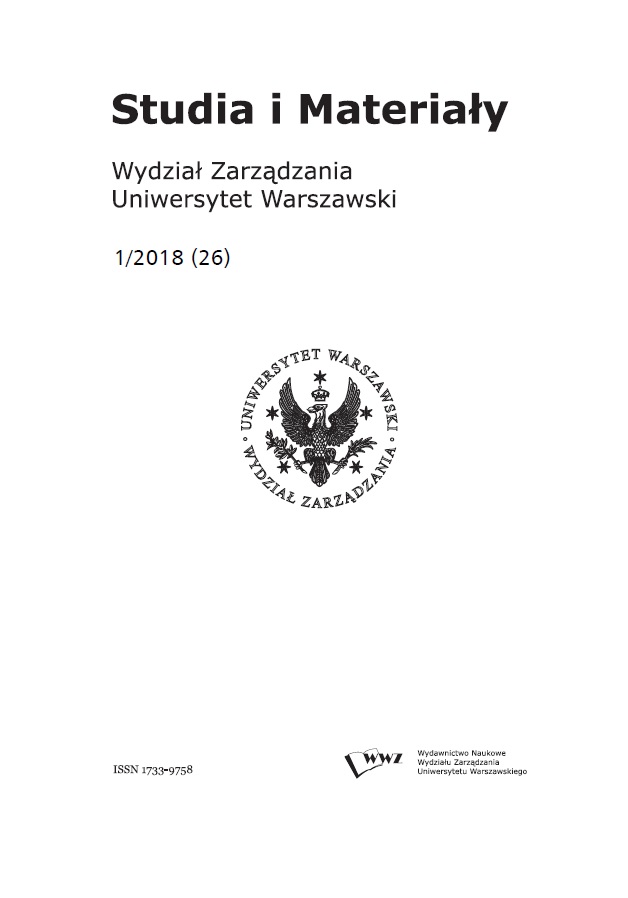Understanding Complexity Leadership: Lesson From Emerging Environment
Understanding Complexity Leadership: Lesson From Emerging Environment
Author(s): Agnieszka DziubińskaSubject(s): Business Economy / Management
Published by: Wydawnictwo Naukowe Wydziału Zarządzania Uniwersytetu Warszawskiego
Keywords: leadership; complexity; emerging markets
Summary/Abstract: In the article, the author concentrates on the exploration of the nature of leadership behaviours and their impact on organisational performance in multinational enterprises (MNEs) in turbulent environments. The results of studies were to answer the following two questions. How and which leadership approach helps understand adaptive processes in an emerging environment? What are complex leadership behaviours of MNEs and how do they influence a successful organisational performance? The article begins with theoretical foundations for the perception of leadership in the light of assumptions resulting from the complexity theory. Then, the empirical context for deliberations, i.e. behaviours of international enterprises in the conditions of emerging markets, is presented. Relationships between leadership and results obtained by organisations were described on the basis of the quality attitude of the case study. The research sample included five small and medium-sized MNEs developing their businessactivity on emerging markets (EMs). The results exhibit two strategies of dealing with the complexity of phenomena, i.e. complexity reduction and complexity absorption. The aim of the first one is convergence, the latter one is divergent in a distinct way. Effectiveness in both cases requires different activities to combine the administrative and the adaptive functions of leadership. Moreover, in surveyed companies, depending on which leadership types were dominated, the organisations were inclined to develop their activities in different domains of the environment of the emerging market. These tendencies may, in short-term, suggest a possible direction of development of organisations.
Journal: Studia i Materiały
- Issue Year: 26/2018
- Issue No: 1
- Page Range: 155-172
- Page Count: 18
- Language: English, Polish

